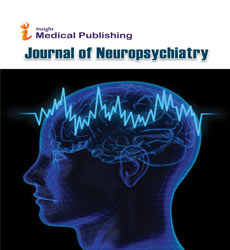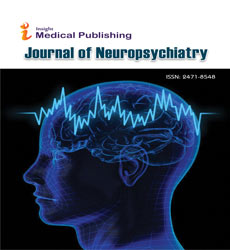Editorial on Various Aspects on Dementia
Liwon Oh*
Division of Neurology, Department of Medicine, St. Michael's Hospital, University of Toronto, Toronto, Ontario, Canada
- *Corresponding Author:
- Liwon Oh
Division of Neurology
Department of Medicine
University of Toronto
Toronto, Canada
E-mail: LiwonOh@gmail.com
Received Date: November 5, 2021; Accepted Date: November 19, 2021; Published Date: November 26, 2021
Citation: Oh L (2021) Editorial on Various Aspects on Dementia. J Neuropsychiatry Vol.5 No.2:e002
Description
Dementia is a name for a group of symptoms that impact your memory, logic, and social abilities to the point where they interfere with your regular activities. Dementia is caused by a collection of disorders rather than a single condition. Memory loss is a common sign of dementia, but it can be caused by a variety of factors. Memory loss is frequently one of the first indicators of dementia; however it isn't always the case. The most prevalent cause of increasing dementia in the elderly is Alzheimer's disease, although dementia can also be caused by a variety of other conditions. Certain dementia symptoms may be reversible depending on the cause. No, many senior citizens spend their entire lives without having dementia.
Muscle and bone degeneration, artery and vascular stiffness, and age-related memory changes such as misplacing car keys on occasion, straining to remember a term but recalling it Later, forgetting the name is a typical part of ageing. Of a mutual acquaintance, entirely oblivious to previous events because dementia is such a broad term, the symptoms can vary a lot from person to person. People with dementia struggle with memory, attention, communication, reasoning, judgement, and problem solving, as well as visual perception abnormalities that go beyond normal ageing. Getting lost in a familiar neighborhood, using strange language to refer to familiar members, forgetting the name of a close family member or friend, forgetting past memories, and being unable to complete tasks independently are all indicators of dementia.
The majority of dementia cases afflict those aged 65 and higher, with age being the strongest recognized risk factor. Dementia is more common in people who have dementia affected parents or siblings. African Americans are twice as likely as whites to get dementia as they grow older. Poor heart health is caused by high blood pressure, excessive cholesterol, and smoking. It can develop to dementia if not treated effectively. Traumatic brain injury-Head traumas can increase the risk of dementia, especially if they are severe or occur repeatedly. The most common types of dementia are as follows: Alzheimer's disease is the most frequent cause of dementia, accounting for 60 to 80 percent of cases. Changes in the brain are the cause. The main symptom is difficulty remembering recent events, such as a conversation that occurred minutes or hours ago, while trouble remembering more distant memories appears later in the disease. Strokes or other difficulties with blood flow to the brain are linked to 10% of dementia cases. Risk factors include high blood pressure, diabetes, and a high cholesterol level. The severity of the symptoms depends on whatever area of the brain is affected and how large it is. Memory loss is a symptom of Lewy body dementia, which can appear in a variety of ways. The movement and balance of people with this type of dementia may be rigid. Mixed dementia is defined as the presence of more than one type of dementia in the brain at the same time, especially in people over the age of 80. For example, a person with vascular dementia may have Alzheimer's disease. It is not always evident that a person has mixed dementia since symptoms of one form of dementia may be more pronounced or overlap with those of another type. When compared to one type of dementia, the progression of the disease could be quicker. A healthcare provider can give tests on attention, memory, problem solving, and other cognitive abilities to see whether there is problem. To discover out what's causing the condition, a physical exam, blood tests, and brain scans like a CT or MRI can all be performed.

Open Access Journals
- Aquaculture & Veterinary Science
- Chemistry & Chemical Sciences
- Clinical Sciences
- Engineering
- General Science
- Genetics & Molecular Biology
- Health Care & Nursing
- Immunology & Microbiology
- Materials Science
- Mathematics & Physics
- Medical Sciences
- Neurology & Psychiatry
- Oncology & Cancer Science
- Pharmaceutical Sciences
